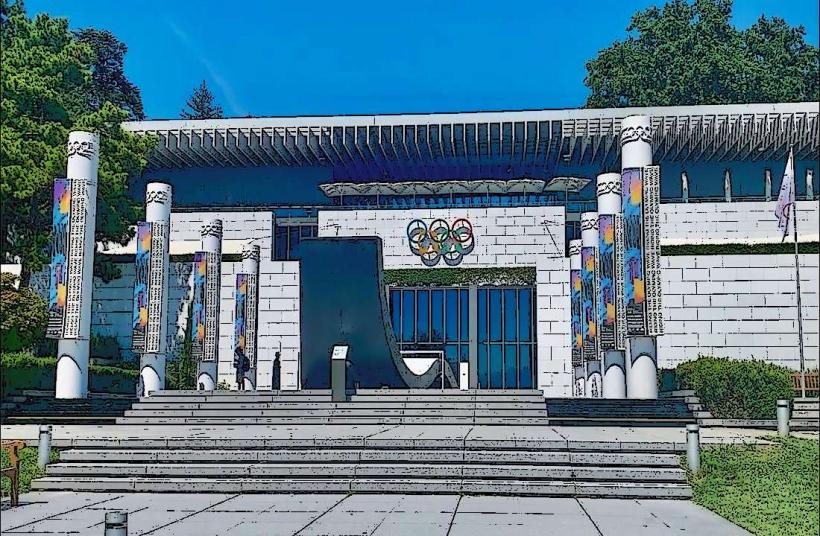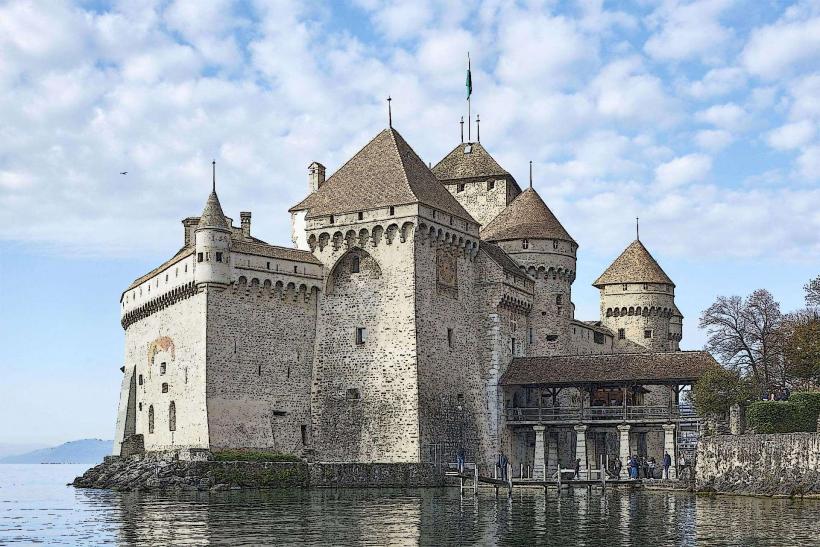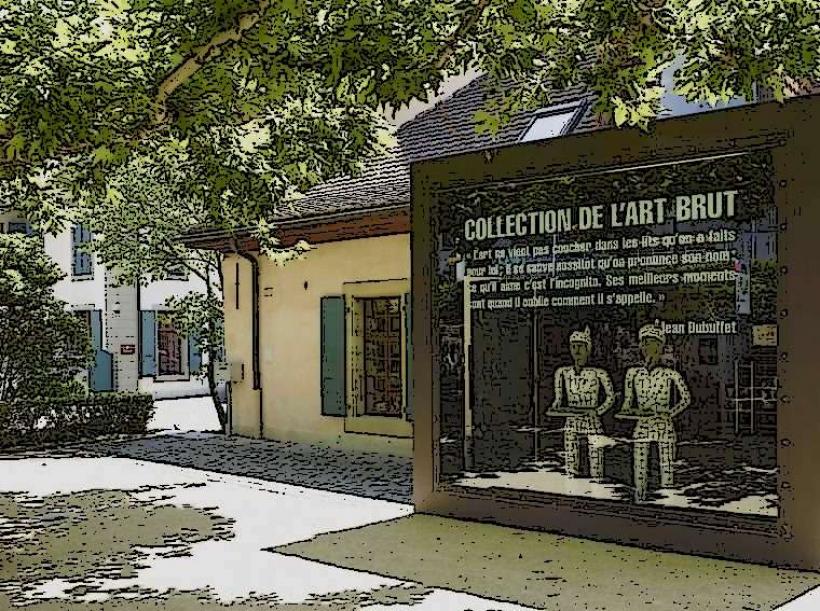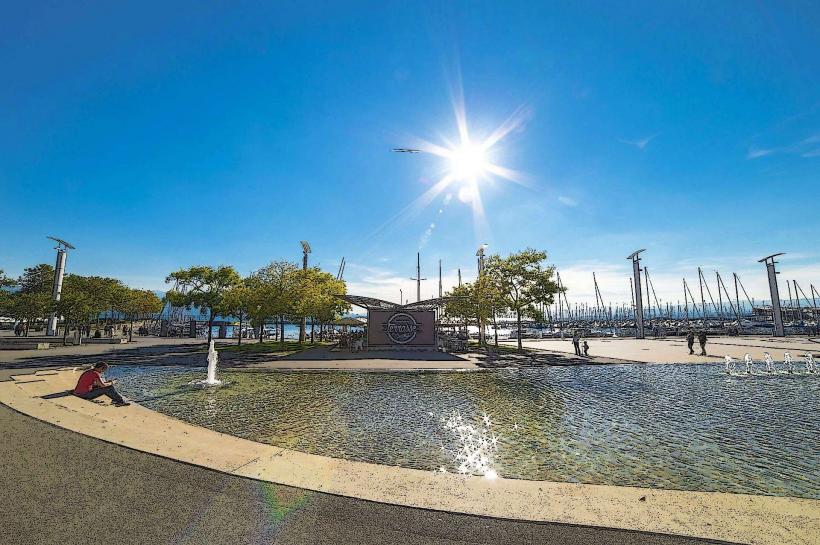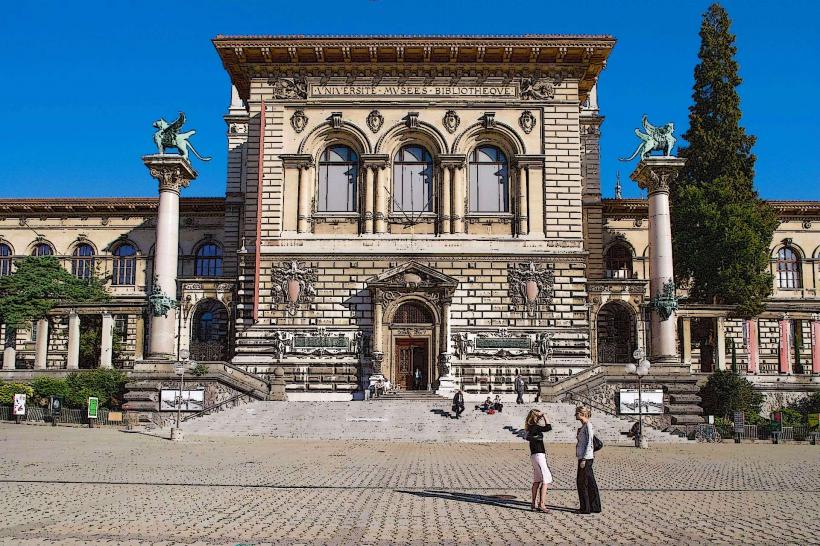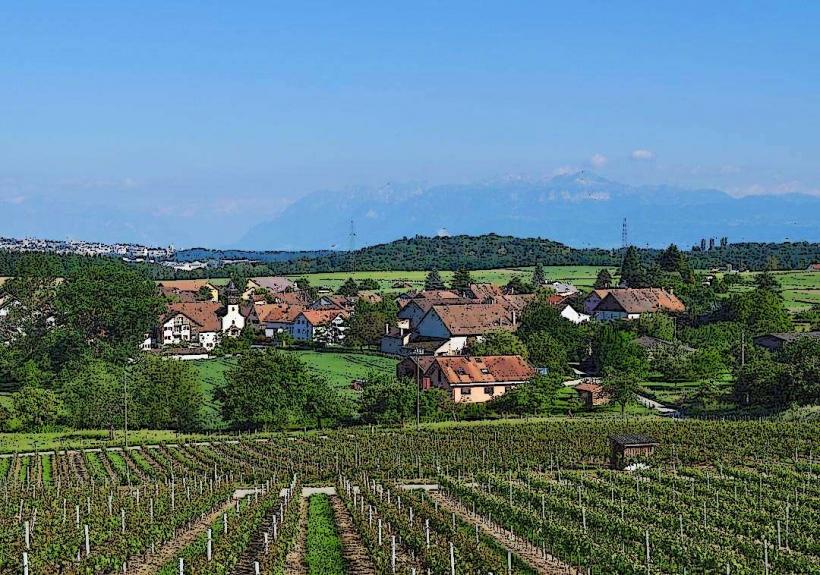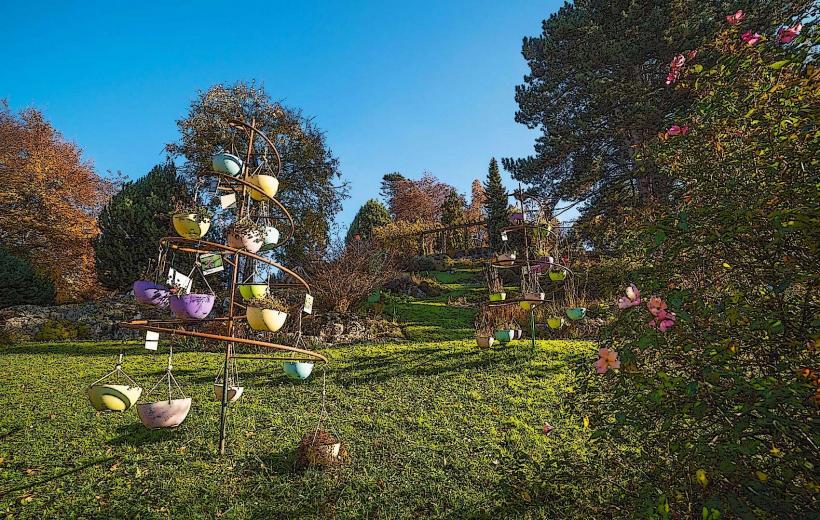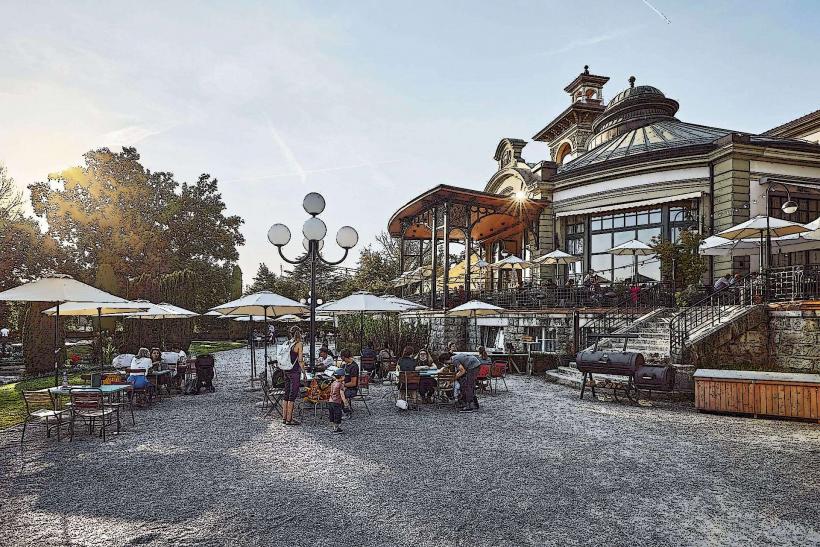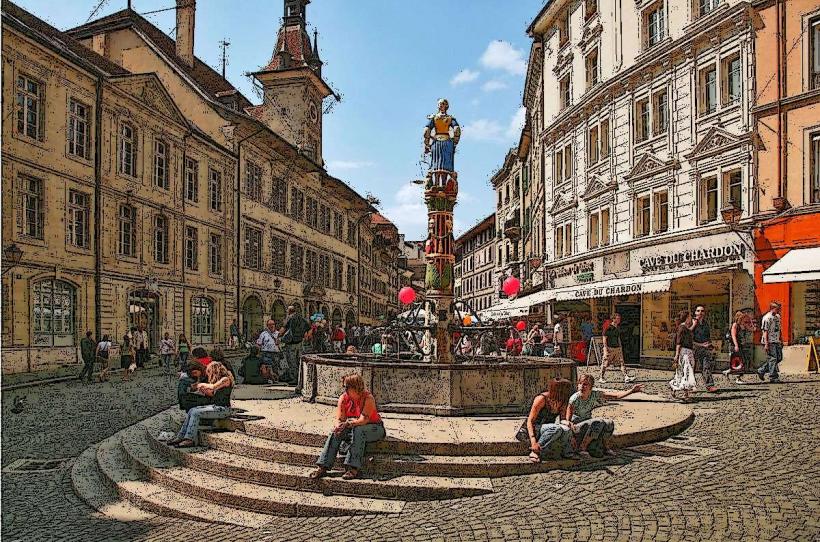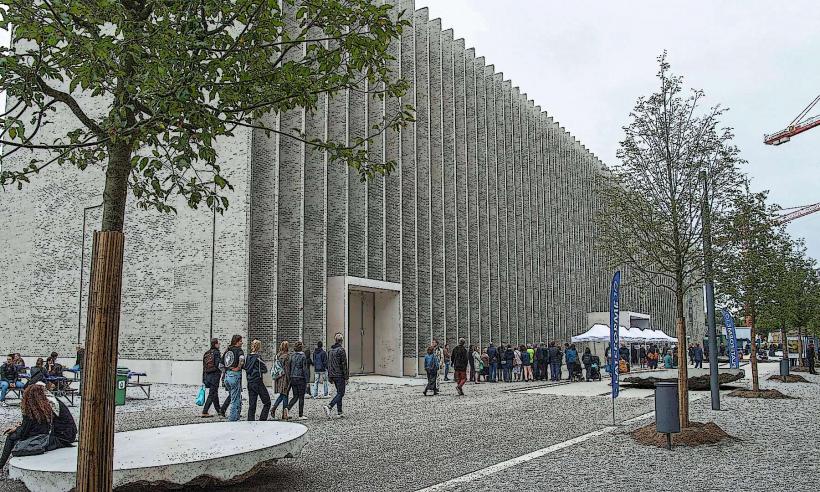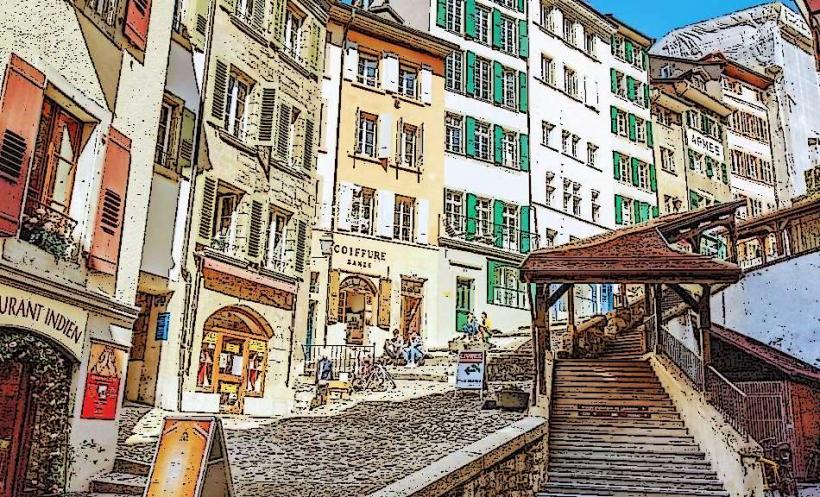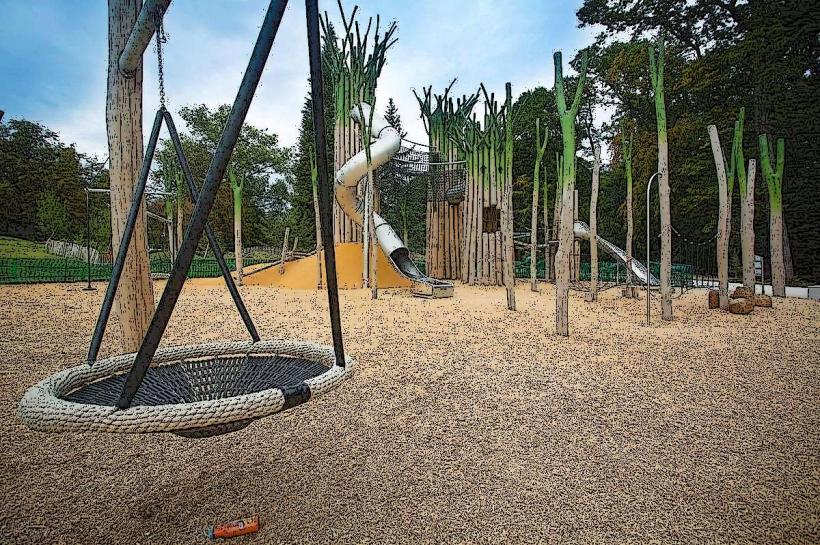Information
Landmark: Lausanne CathedralCity: Lausanne
Country: Switzerland
Continent: Europe
Lausanne Cathedral is one of the most significant Gothic structures in Switzerland and a central landmark in the city of Lausanne. Dedicated to the Virgin Mary and consecrated in 1275, the cathedral is renowned for its impressive architecture, historical role in the Reformation, and its enduring presence as an active place of worship.
1. Overview
- Location: The cathedral is situated on a hill in Lausanne’s Old Town, offering views over the city, Lake Geneva, and the surrounding Alps.
- Historical Significance: Initially built as a Catholic church, Lausanne Cathedral became Protestant in 1536 during the Reformation, marking a major transition in Swiss religious history.
- Construction and Style: The cathedral was constructed between the 12th and 13th centuries, making it an excellent example of early Gothic architecture with later additions.
2. Architectural Features
- Facade and Towers: The main facade includes a large rose window, detailed Gothic arches, and tall spires. The north tower, known as the Belfry, houses the cathedral’s bells and provides panoramic views of Lausanne.
- Rose Window: This intricate window is one of the most celebrated in Switzerland. With its 105 panels, it depicts themes from medieval cosmology, such as the seasons, elements, and Zodiac signs.
- Interior: The cathedral’s interior includes high vaulted ceilings, narrow nave aisles, and ornate capitals, creating an airy, luminous atmosphere. The simplicity of Protestant design contrasts with the Gothic ornamentation, giving the space a unique balance.
- Organ: The grand organ, installed in 2003, is a remarkable modern addition to the cathedral. Built by the famous organ-maker Fisk, it is one of the few organs in the world specifically designed to accommodate both Protestant and Catholic musical traditions.
3. Historical and Cultural Significance
- Role in the Reformation: In 1536, Lausanne Cathedral was converted to Protestantism, reflecting the sweeping influence of the Reformation in Switzerland. Many original artworks and religious objects were removed or destroyed during this period, in keeping with Protestant principles.
- Night Watch Tradition: For over 600 years, a night watchman has climbed the bell tower every evening to call out the time between 10 PM and 2 AM. It’s a rare tradition preserved in Lausanne and is a unique aspect of the cathedral’s heritage.
4. Visitor Highlights
- Tower Climb: Visitors can climb the north tower to experience panoramic views of Lausanne, Lake Geneva, and the Alps. This climb is highly popular for its rewarding vistas.
- Guided Tours: The cathedral offers guided tours, which provide in-depth insights into the building’s architectural details, history, and significance in the Protestant Reformation.
- Music and Events: The cathedral regularly hosts concerts, particularly organ recitals, making use of its impressive acoustics and grand organ.
5. Restoration Efforts
- Lausanne Cathedral has undergone extensive restoration efforts over the centuries, particularly in the 19th century under the guidance of architect Eugène Viollet-le-Duc. These restorations aimed to preserve its Gothic architecture and update some structural elements to prevent decay.
6. Conclusion
Lausanne Cathedral is not only a historic Gothic masterpiece but also a living part of Lausanne’s cultural life. Its stunning architecture, religious history, and the ongoing night watch tradition make it a fascinating and meaningful landmark in Swiss heritage. For visitors, the combination of breathtaking views, intricate architectural features, and unique historical practices offers an enriching experience.

